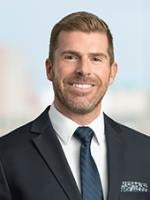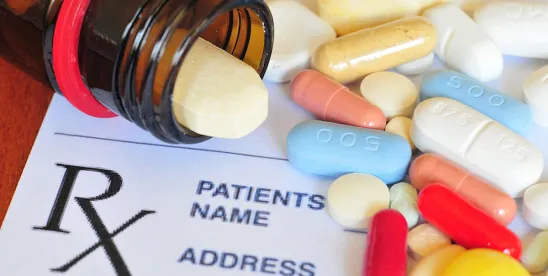Highlights
- The HHS-OIG released a favorable opinion regarding refunds and discounts offered to a treatment center for a drug manufactured by the corporation offering the assistance
- The discounts offered under the proposed arrangement satisfy the “discount” safe harbor to the Anti-Kickback Statute (AKS)
- The proposed arrangement included factors, the agency said, that limited risk under the AKS and the civil monetary penalty laws (CMP)
The U.S. Department of Health and Human Services’ Office of Inspector General (HHS-OIG) recently released OIG Advisory Opinion 24-04, a favorable opinion regarding the federal Anti-Kickback Statute (AKS) and civil monetary penalty laws (CMP) against beneficiary inducements as applied to a refund program and discount program. The program was offered by an affiliate of a drug manufacturer to a treatment center that administers a one-time, potentially curative drug for what was termed an ultra-rare pediatric medical condition.
The HHS-OIG concluded that both forms of assistance offered to the treatment center under the proposed arrangement constitute remuneration under the AKS. However, due to sufficient safeguards in place to mitigate the risk of fraud and abuse, the HHS-OIG did not impose sanctions against the corporate affiliate.
Further, the HHS-OIG found that the proposed arrangement would not implicate the CMP because, although the assistance offered to the treatment center is considered remuneration, the treatment center is the only place where patients can receive the drug, and any assistance is only offered after a patient’s physician has referred the patient to the treatment center.
Background
The corporation involved is an affiliate of a pharmaceutical manufacturer that developed a drug that may only be administered at one treatment center in the U.S. by a qualified surgeon. The U.S. Food and Drug Administration only approved a single manufacturing facility, which is located on the campus of the treatment center. Patients with the condition have high healthcare utilization, including prolonged inpatient hospitalizations, frequent outpatient visits, and diagnostic and surgical procedures. Patients who receive only supportive care typically die within the first two years of life.
The proposed arrangement offers assistance to the treatment center in two ways:
- Refund Program: The corporation 1) waives or refunds 100 percent of the wholesale acquisition cost (WAC) of the drug in the event that an insurer refuses to reimburse the treatment center after initially approving the drug for a particular patient, or 2) allows the treatment center to delay payment for the drug in the event of a reimbursement delay for a particular patient. The refund program is only available to the treatment center if certain conditions are met, including the treatment center receiving written approval from the patient’s insurer that the drug treatment is covered for the patient.
- Discount Program: The corporation offers a discount to the treatment center on the price of the drug in the event that the WAC on the date the treatment center seeks clinical and financial clearance with the patient’s insurer is lower than the WAC on the date that the lot of the drug is delivered to the treatment center for implantation in the patient. The discount is equal to the difference in the two WAC figures, as the patient’s insurer would not reimburse the treatment center for this difference and, instead, the treatment center would be responsible for paying the difference.
The HHS-OIG analyzed the two forms of assistance separately. With respect to the refund program, the agency found that the proposed refunds constituted remuneration under the AKS, but relied on the following factors in determining that this posed little risk of fraud and abuse:
- The program is limited in scope and time. The treatment center receives a refund only if an insurer initially approves the treatment and later denies a claim. Also, to be eligible for the refund program, the drug must have been purchased during the three-year purchase term.
- The drug is a one-time, potentially curative treatment and is the only treatment option available. As a result, there is a very low risk of interference with clinical decision-making, overutilization, or inappropriate utilization.
- There are safeguards to minimize the risk of overutilization. The refund is only available if reimbursement is denied in its entirety, and the corporation does not cover expenses related to the cost of the patient’s care.
- There are transparency measures in place, including reporting on invoices, cost reports, and reports to insurers, to reduce the likelihood of inappropriately increasing costs to federal healthcare programs.
- Patients must go to the treatment center, as it is the only place the drug may be administered, so there is little risk of influencing patients’ selection of provider.
With respect to the discount program, the HHS-OIG found that the discounts constitute remuneration under the AKS, but that this posed little risk due to the following factors:
- The assistance meets the definition of a “discount” under the discount safe harbor as the amount of any price reduction is based on an arms-length transaction.
- The corporation meets the obligations of an “offeror” under the discount safe harbor by informing the treatment center of the center’s obligations to report such a discount on its cost report as required by the safe harbor.
Ultimately, the HHS-OIG found that the refund program and discount program both posed low risk of fraud and abuse due to the safeguards and the time-limited nature of the drug treatment.
Key Takeaways
This advisory opinion serves as a reminder that a proposed arrangement may involve remuneration without implicating the AKS or CMP, if there are sufficient safeguards in place. The opinion is likely limited in scope since it involves a unique set of facts, including a one-time treatment only offered at one location with little to no risk of remuneration influencing the patient’s choice of provider.






 />i
/>i
